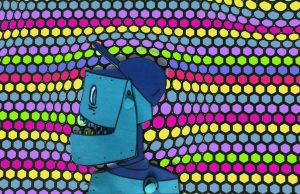Xondra wishes you cared for her Like You Used To on her genre-fusing new single — showcasing today on Tinnitist.
The bittersweet track from the Long Island singer-songwriter — real name: Alexondra O’Connell — is anchored by a supple, silky and soulful electric guitar that gently and gracefully eases the singer into Xondra’s longing lyrics of love gone wrong:
“Well, well, well, well
You’ve been hiding from yourself,
And everybody here can tell,
So you might as well give up your spot
Well, well, well, well,
I’ve been honest from the start,
Now I watch us fall apart
Your hand grasped my heart,
And I want you to have it.
You don’t touch me like you used to.”
The refrain meanders where the past lover retreated to. A sensation of being physically present but mentally absent, causing Xondra to overthink what they’re doing wrong in the relationship. The bridge accelerates the beat with a more steady snare drum, leaning into Xondra’s talent for explaining real situations with melodies.

“I’m starting to think that I’m doing this wrong
I let my trauma tell me to withdraw
’Cause I can tell just by the way that you’re breathing
I can see you’re having trouble sleeping
You’re dreaming about leaving me.”
Background vocals leap into the jazzy, solemn lullaby, further accentuating Xondra’s mixed palette of musical genres. This song shows her ability to pull the best elements from each style to create a singular medley of pop, rock, soul and R&B. She adds a universal question to the song that relates to a wider audience. “Where does (love) go when it’s over and done?”
As a child, Xondra discovered her musical affinity by sitting near the radio. She has been performing in and around New York since 2014. Her music revolves around the honest delivery of existing as a woman in a man’s world. Like other indie musicians, she favours dropping hidden connections and references to her other music throughout her discography.
Check out Like You Used To above, sample more from Xondra below, and keep up with her on her website, Facebook and Instagram.












































